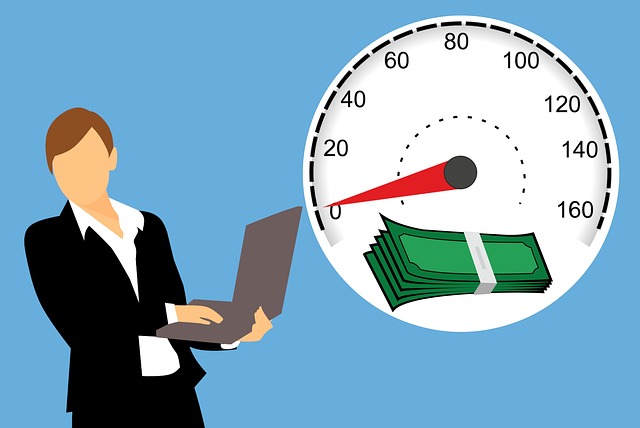
What Is The Minimum Salary in California?
Employees in California have the legal right to compensation as set forth under both State and Federal law.
Please look at some of the employees right in California:
- What Is The Minimum Salary in California?
- Your Rights Regarding Tips
- Exempt vs Non-Exempt Employee
- Overtime
- Meal and Rest Break Premiums
- Your Rights to Records
Let’s go for details
What Is The Minimum Salary in California?

One of the most fundamental of an employee’s rights is the right to a minimum wage. In California, the minimum wage an employee is entitled to will depend both on how many employees work for the employer and the year.
As indicated in the chart below, the law requires employers to gradually increase their respective wages (depending on the number of employees) by a dollar each year until the minimum wage of $15.00/hr is reached.
| Date | The minimum wage for employers with 25 employees or less | The minimum wage for employers with 26 employees or more |
| January 1, 2020 | $12.00/hr | $13.00/hr |
| January 1, 2021 | $13.00/hr | $14.00/hr |
| January 1, 2022 | $14.00/hr | $15.00/hr |
| January 1, 2023 | $15.00/hr |
There are some employees who are exempt from the minimum wage laws, such as outside salespersons, individuals who are the parent, spouse, or child of the employer, and apprentices regularly indentured under the State Division of Apprenticeship Standards. However, for most employees, minimum wage laws apply, and employers are obligated to pay their employees the minimum wage set forth in the chart above.
Your Rights Regarding Tips

Keep in mind, in California, tips are separate from the minimum wage and cannot be counted towards satisfying the employer’s legal obligation to pay a minimum wage. In contrast, federal law allows tip credits up to a certain amount to count towards paying a minimum wage. In this scenario, California law is controlling and an employer in California must follow California law.
If your employer is following federal law instead of California, it may be best to send your boss an email or some other form of written communication sharing with them Labor Code 351 and respectfully explain the practice of taking wages is not permitted in the State of California.
Additionally, it is important to note that in all scenarios, tips are 100% the property of the employee. Thus, even when the minimum wage is met, an employer cannot take tips that exceed the minimum wage.
However, tip pooling is legal in California so long as the business collects all the tips received by employees and then splits them evenly. Pool tips can be shared with employees who have some supervisory duties, like shift supervisors, or other workers such as hosts, bartenders, busboys, etc. However, tips may not be shared with managers who have the authority to hire or fire employees.
Exempt vs. Non-Exempt

The wages an employee is entitled to may also depend on whether the employee is exempt or non-exempt.
Nonexempt employees are entitled to overtime, meal breaks, and rest breaks, as set forth in the California Labor Code. In contrast, if an employee is exempt from wage and hour laws, they are not entitled to meal/rest breaks or overtime. Whether an employee is exempt or not depends on an employee is classified pursuant to the California Labor Code.
Hourly employees are often non-exempt employees who are entitled to overtime and meal/rest breaks. However, there are many exceptions that could apply.
The largest class of exempt employees are those falling into the following categories: (1) administrative exemption, (2) executive exemption, or (3) professional exemption.
Labor Code 515(a) authorizes these exemptions so long as the employee is primarily engaged in the duties that meet the test of the exemption, customarily and regularly exercises discretion and independent judgment in performing those duties, and earns a monthly income equivalent to no less than two times the state minimum wage for full-time employment.
Administrative exemption:
In order to be considered exempt under the administrative exemption, the employee’s duties and responsibilities must involve either:
- The performance of office or non-manual work directly related to management policies or general business operations of his or her employer or his or her employer’s customers, or
- The performance of functions in the administration of a school system, or educational establishment or institution, or of a department or subdivision thereof, in work directly related to the academic instruction or training carried on therein.
Executive Exemption
The executive exemption applies to those whose duties and responsibilities involve the management of the enterprise in which he or she is employed or of a customarily recognized department or subdivision thereof
Professional Exemption
The professional exemption applies to those who are licenses or certified by the State of California and are primarily engaged in the practice of one of the following recognized professions: law, medicine, dentistry, optometry, architecture, engineering, teaching, or accounting OR are primarily engaged in an occupation commonly recognized as a learned or artistic profession.
A learned or artistic profession requires, among other things, that the work is original and creative in character in a recognized field of artistic endeavor.
Other Miscellaneous Exemptions
The California labor code also specifically states additional professions are exempt including computer professionals. However, the computer professional exemption is subject to various exceptions outlined in Labor Code Section 515.5.
Further, there is an exemption for employees who earn more than 1 ½ times the minimum wage and earn more than half of their compensation from commissions. Additionally, overtime and meal/rest breaks do not apply to employees of state or local governments.
Overall
If your job does not fall within one of the stated exemptions to the wage and hour laws, then you are a non-exempt employee, entitled to overtime and meal/rest breaks. Keep in mind, just because you are paid a salary does not automatically mean you are an exempt employee.
If you believe you have been inappropriately misclassified as an exempt employee, it is imperative you call an experienced wage dispute lawyer as soon as possible. You may be entitled to years of overtime and meal/rest break penalties.
Overtime

All non-exempt employees are entitled to overtime.
Overtime laws, when applicable, require that when an employee works for more than 8 hours in a day or 40 hours in a week, the employer pays overtime.
Overtime is calculated as follows:
- 1 ½ times an employee’s regular rate of pay for all hours worked in excess of 8 hours up to and including 12 hours in a work day AND for the first eight hours worked on the seventh consecutive day of work in a work week.
- Double the employee’s regular rate of pay for all hours worked in excess of 12 hours in any workday AND for all hours worked in excess of 8 hours on the seventh consecutive day of work in a workweek.
As noted above, overtime is based on the regular rate of pay, which is the compensation you normally earn for the work you perform.
Importantly, this means that the overtime pay is not based solely on your hourly rate or salary. Rather, the overtime rate must also factor in all regular income derived from the job, including nondiscretionary bonuses and/or commissions.
For example, if you are paid on an hourly basis, that amount, including among other things, shift differentials and the per-hour value of any other non-hourly compensation the employee has earned, is the regular rate of pay.
Comparing daily vs weekly hours
When the daily overtime hours are equal to or greater than weekly overtime hours, the employer must pay the daily overtime. When the weekly overtime hours are more than daily overtime hours, then the employer must pay weekly overtime hours in addition to daily overtime.
Overall
If you are a non-exempt employee and work more than 8 hours in a day or 40 hours in a week, you may be entitled to additional compensation (wages).
Meal & Rest Break Premiums

All non-exempt employees are also entitled to uninterrupted meal and rest breaks. This means that the employee must be relieved from all work duties and work obligations during the break period.
In California, the number of meal and rest breaks you are entitled to depend on the number of hours worked in a day as described below:
| Shift Length | Paid 10 min Rest Break | Unpaid 30-min Meal Break |
| Less than 3.5 hours | 0 | 0 |
| 3.5 – 5 hours | 1 | 0 |
| 5.1 – 6 hours | 1 | 1 |
| 6.1 – 10 hours | 2 | 1 |
| 10.1 – 14 hours | 3 | 2 |
| 14 + hours | At least 4 | 2 |
However, an employer and employee can agree to waive lunch for shifts under six hours. Additionally, an employee can waive a second meal period but only if they work less than 12 hours.
The penalty for not providing a rest break is 1 hour of wages for each day a rest break was not given. An employee is also entitled to an additional 1 hour of wages for each day a meal break was not given.
Meal Period and rest break penalties are only imposed once each day. Accordingly, the maximum penalty for both rest break and meal periods violations cannot exceed 2 hours of wages per day.
These penalties can add up exponentially if you are deprived of the meal and/or rest breaks on a regular basis.
For example, if an employee making $13.00/hr is deprived of a meal break once a week and five rest break a week (all on separate days), for 52 weeks for the last three years, that alone would equate to $12,168.00.
With record-keeping violations and unpaid overtime, the amount of compensation an employee can be entitled to could be substantial.
Your Rights to Records

The way an employee can ensure they are paid the appropriate wages is to review their pay stub and payroll records.
Pay stubs or wage statements must show the following information:
- Gross wages earned
- Total hours worked
- All deductions
- Net wages earned
- The dates for which the employee is paid
- The name of the employee
- The last four digits of the employee’s social security number (or employee identification number)
- Name and Address of the legal entity that is the employer
- All applicable hourly rates in effect during the pay period, and the corresponding number of hours workers at each hourly rate
Additionally, payroll records must show the hours worked daily and the wages paid to the employees.
Applicable Penalties
An employee who suffers injury as a result of a knowing and intentional failure by an employer to comply with pay stub/wage statement requirements is entitled to recover the greater of actual damages or $50.00 for the initial pay period the violation occurs and $100.00 per employee for each subsequent violation, not to exceed an aggregate penalty of $4,000.00 per employee.
A person who willfully fails to maintain such records or fails to permit an employee to inspect such records is subject to a civil penalty of $500.00. Moreover, an employer may be able to recover damages under the Private Attorney General Act (hereinafter “PAGA”), which allows an employee to step into the shoes of all employees similarly situated and recover additional penalties.
PAGA actions can be advantageous for the employees to recover penalties for multiple violations of the California Labor Code. However, any recovery pursuant to PAGA is divided, 75% going to the State of California and 25% split equally among all aggrieved employees.
Generally, PAGA carries a $100.00 penalty for the initial wage and hour violation and $200.00 for each subsequent violation. Thus, penalties can add up exponentially for an employer.
Accordingly, each employer should have ample motivation to keep payroll and wage statement records compliant with California and Federal law.
A Note on Independent Contractors:

Meal/Rest break and overtime laws do not apply to those who are independent contractors. However, many employers misclassify independent contractors and wrongfully deprive these workers of protections and benefits afforded to them under the law.
In California, a worker is considered an employee and not an independent contractor, unless the hiring entity satisfied all three of the following conditions:
- The worker is free from the control and direction of the hiring entity in connection with the performance of the work, both under the contract for the performance of the work and in fact.
- The more control exerted over a worker by the hiring entity, the more likely the worker is not an independent contractor.
- The worker performs work that is outside the usual course of the hiring entity’s business.
- Contracted workers who provide services in a role comparable to that of existing employees will likely be viewed as working in the usual course of the hiring entity’s business.
- The worker is customarily engaged in an independently established trade, occupation, or business of the same nature as that involved in the work performed.
- Workers who do not have their own independent business engaged in the established trade, occupation, or business will likely not be considered an independent contractor.
If you believe you are being misclassified, then it is important to contact an employment attorney immediately. You may be entitled to recover meal/rest break violations, over time, recover the value of benefits that should have been provided, and other wage and/or penalties applicable under the law.
Sources:



